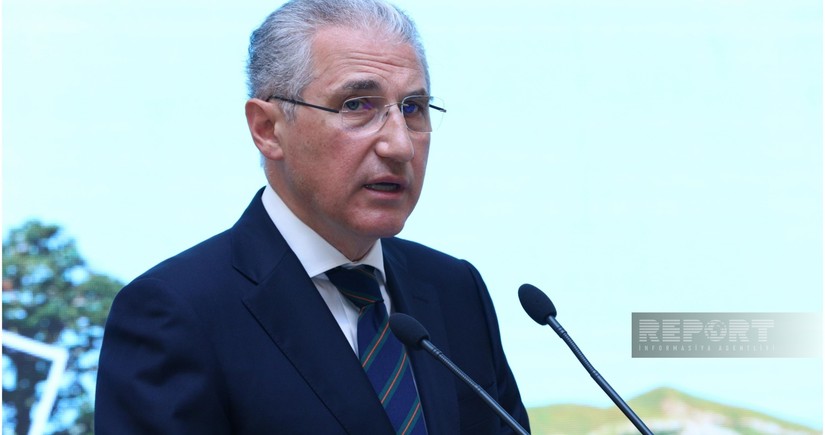Delegates meet in Azerbaijan’s Shamakhi to build trust ahead of COP30
- 23 July, 2025
- 15:41

On July 23, heads of delegations of groups and selected parties participating in international climate negotiations under the UN Framework Convention on Climate Change (UNFCCC) gathered at the climate meeting organized for the second time in Shamakhi, Azerbaijan, Report informs.
During his speech at the opening of the event, Mukhtar Babayev, the Azerbaijani President’s Special Representative for Climate Issues and COP29 President, noted that this meeting, held in Azerbaijan, is an important platform to strengthen cooperation and trust towards COP30, building on the results of COP29 and the first Global Stocktake (GST).
"At this time last year, we were working intensively to prepare for COP29 to be held in Baku. Today, we have gathered not only to review the work done, but also to discuss the outcomes from COP29 and shift our focus to COP30: Belem, Brazil," Babayev said.
He also pointed out that although COP29 took place amid great geopolitical uncertainty, economic pressures, climate disasters, and growing distrust in multilateralism, the international community responded to these challenges together.
In Baku, the New Collective Quantified Goal (NCQG) on climate finance was adopted and the Baku Finance Goal was announced. This initiative envisions a commitment to mobilize at least $300 annually for developing countries by 2035.
At the same time, during COP29, the parties tasked the COP Presidencies of Azerbaijan and Brazil to prepare a Roadmap from Baku to Belem and to define a roadmap towards achieving the annual financial target of $1.3 trillion by 2035.
"What we achieved in Baku is not the end, it's a new beginning. Shamakhi gives us an opportunity to think, recharge, and focus on the next phase. The main goal now is to turn the implementation period into reality," said the COP29 President.
Highlighting that the COP29 Presidency has identified three key priorities for the upcoming period, Mukhtar Babayev said: "First, we must continue to support the Brazilian Presidency. In shaping a COP that is ambitious, inclusive, and results-oriented. As the COP29 Presidency, we continue our active participation in all key areas from finance to nationally determined contributions (NDCs), from sustainability to transparency. Second, we continue to act as key advocates for the Roadmap from Baku to Belem. Our goal is to present a clear and practical path to the $1.3 trillion target in full cooperation with the COP30 Presidency and other stakeholders. Third, we must be accountable to ourselves. The commitments made in Baku on adaptation, multilateral funds, and loss and damage must not be forgotten. The credibility of this process depends on it. Shamakhi is not just a beautiful place, but also a symbol of our shared belief that multilateralism based on diplomacy, trust, and cooperation still works."
Babayev thanked COP29 Lead Negotiator Yalchin Rafiyev and the UNFCCC Secretariat for their continued support. He emphasized that recent meetings in Bonn and Seville have once again demonstrated that such open exchanges of ideas strengthen trust and contribute to collective progress.
"As the COP29 Presidency, our role is continuity and accountability. We remain committed to a number of obligations. These include tracking donors' fulfillment of their promises, including commitments on adaptation, UNFCCC funds, and climate-vulnerable countries; supporting Brazil in organizing a successful COP30; and transforming the outcomes of the Baku process into strong Nationally Determined Contributions (NDCs) and inspiring political leadership," Babayev concluded his speech.
